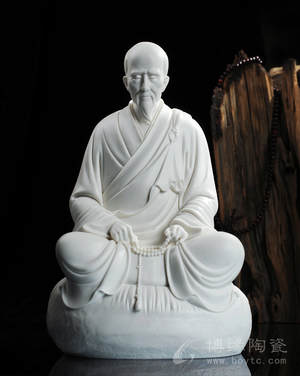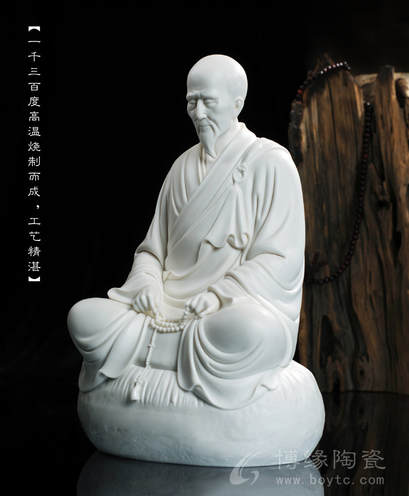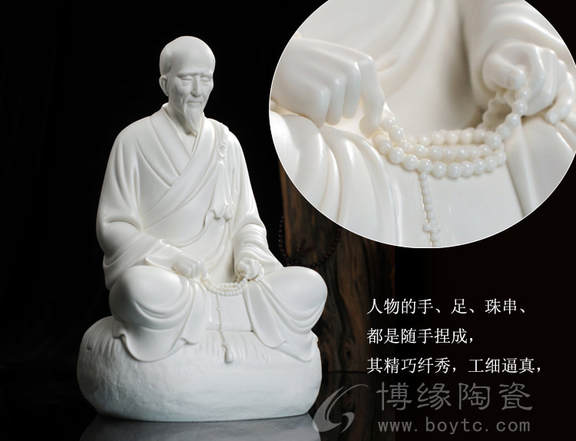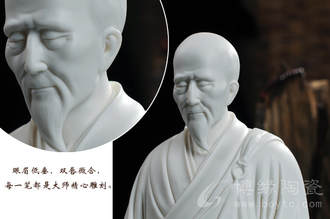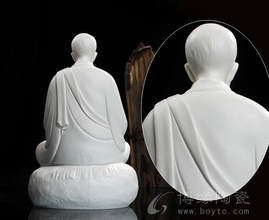Master Xu Yun – Beautiful Ceramic Statue
‘Throughout my life I have seen Five Emperors and Four Dynasties come and go and have experienced more than a few degrees of vicissitude. After suffering from ten hardships, I know that things are impermanent.
The Five Qing Dynasty Emperors are Daoguang, Xianfeng, Tongzhi, Guangxu and Xuantong – and the Four Dynasties are the Manchu (Qing) Dynasty, the Taiping Heavenly Kingdom, the Republic of China and the People's Republic of China.
The ten difficulties are a difficult birth (from a prolapsed womb), Hungry (whilst being cold and covered in snow), dysentery (and associated illnesses), a mouth full of (flowing) blood, falling into water, developing serious illnesses, the rope breaking and being swept through rivers, narrowly escaped with cuts to the abdomen, the entire body ‘lifeless’ like a piece of wood and beaten mercilessly by bandits.’
MASTER XU YUN
坐阅五帝四朝,不觉沧桑几度;受尽九磨十难,了知世事无常。
五帝:清代道光、咸丰、同治、光绪与宣统皇帝。四朝:满清皇朝、太平天国、中华民国与中华人民共和国。十难:生为肉球、饥寒雪掩、痢疾待毙、口流鲜血、失足堕水、大病顿发、索断浸水、险遭剖腹、全身枯木、遭匪毒打。[虚云法师]
The Five Qing Dynasty Emperors are Daoguang, Xianfeng, Tongzhi, Guangxu and Xuantong – and the Four Dynasties are the Manchu (Qing) Dynasty, the Taiping Heavenly Kingdom, the Republic of China and the People's Republic of China.
The ten difficulties are a difficult birth (from a prolapsed womb), Hungry (whilst being cold and covered in snow), dysentery (and associated illnesses), a mouth full of (flowing) blood, falling into water, developing serious illnesses, the rope breaking and being swept through rivers, narrowly escaped with cuts to the abdomen, the entire body ‘lifeless’ like a piece of wood and beaten mercilessly by bandits.’
MASTER XU YUN
坐阅五帝四朝,不觉沧桑几度;受尽九磨十难,了知世事无常。
五帝:清代道光、咸丰、同治、光绪与宣统皇帝。四朝:满清皇朝、太平天国、中华民国与中华人民共和国。十难:生为肉球、饥寒雪掩、痢疾待毙、口流鲜血、失足堕水、大病顿发、索断浸水、险遭剖腹、全身枯木、遭匪毒打。[虚云法师]
